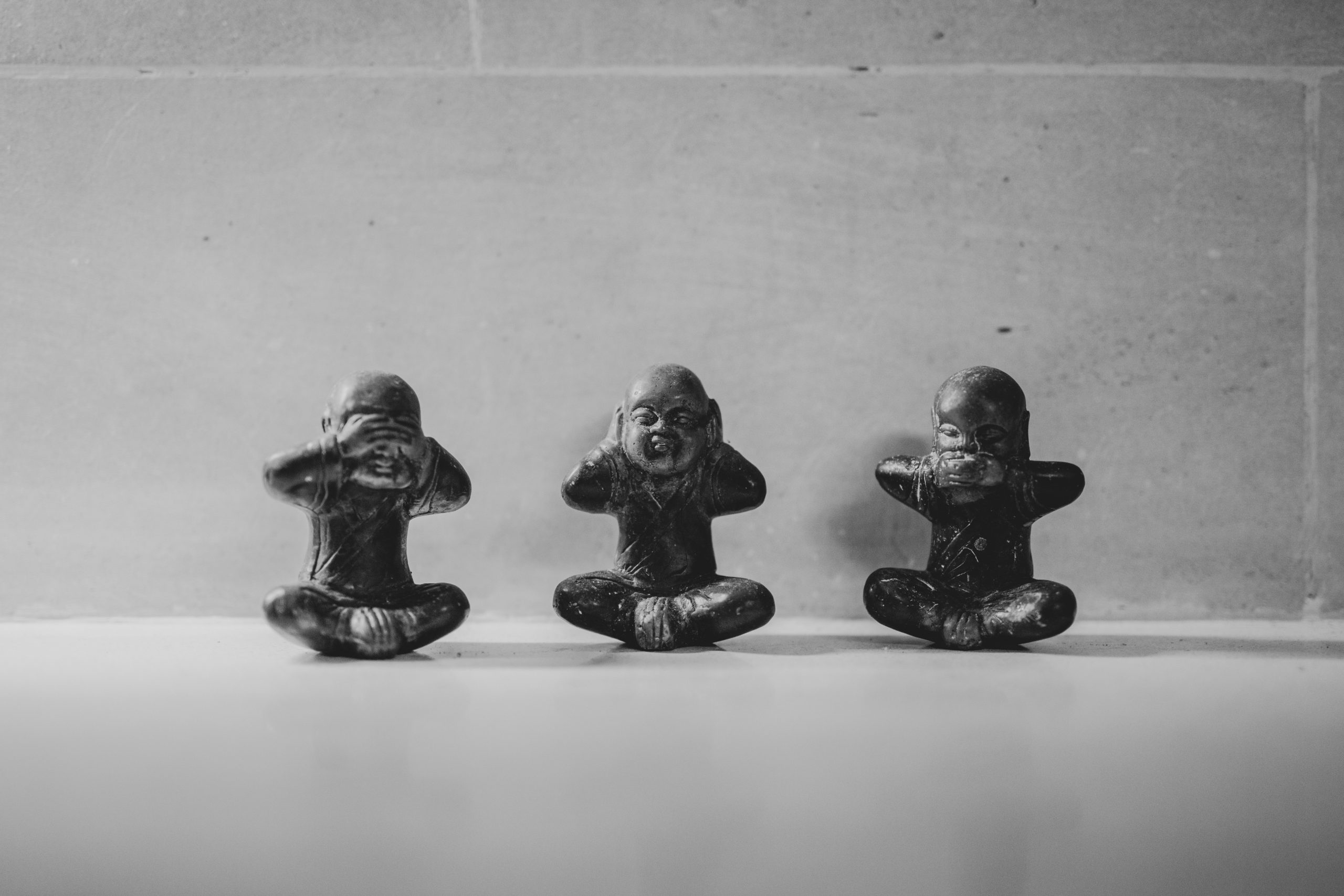This Ramadan, MuslimMatters is pleased to host the Institute Of Knowledge‘s daily Ramadan series: Ramadan Reflections. Through this series, each day we will spend time connecting with the Qur’an on a deeper, more spiritual, uplifting level.
Episode 1, Episode 2, Episode 3, Episode 4, Episode 5, Episode 6, Episode 7, Episode 8, Episode 9, Episode 10, Episode 11, Episode 12, Episode 13
Transcript
We start by mentioning Allah, praising Him, thanking Him, and asking Him to bless and honor our beloved Prophet and Messenger صلى الله عليه وسلم.
As we start our 14th session, we are looking at the 14th juz of the Qur’an, which covers surah 15, surah al-Hijr, and surah 16, surah al-Nahl. Towards the end of surah al-Nahl, Allah subhanahu wa ta’ala spends a number of verses, reminding us to be people who keep our promises. If I made a promise, if I entered into a contract, I should wholeheartedly stick to that. Allah subhanahu wa ta’ala, He says in verse 91,
وَأَوْفُوا۟ بِعَهْدِ ٱللَّهِ إِذَا عَـٰهَدتُّمْ وَلَا تَنقُضُوا۟ ٱلْأَيْمَـٰنَ بَعْدَ تَوْكِيدِهَا وَقَدْ جَعَلْتُمُ ٱللَّهَ عَلَيْكُمْ كَفِيلًا ۚ إِنَّ ٱللَّهَ يَعْلَمُ مَا تَفْعَلُونَ ٩١
Honour Allah’s covenant when you make a pledge, and do not break your oaths after confirming them, having made Allah your guarantor. Surely Allah knows all you do. (Quran 16:91)
Meaning, fulfill the promises you have made to Allah when you made them. This could refer to any promise that we have made to Allah. By me being a human being and a Muslim, I have engaged in a contract with Allah. Oh Allah, I will believe in You. I will worship You and You alone. I will pray five times a day. if I have the wealth, I will give zakaah. If I’m physically able, I will fast. If I have the wealth and ability, I will perform hajj. I’ll be good to my parents. I’ll be good to my spouse. I’ll be good to my kids. I’ll take care of the poor, the weak, and the orphans. I will not be angry, oppressive, tyrannical, arrogant, greedy, hateful, nor envious. Rather, I will be kind, soft, caring, generous, forgiving, and all of these good qualities.
And Allah continues to say again that do not break or violate these promises or oaths that you have made. If you say, I swear to God I will do such and such, that is a yameen (oath). Also, anything that when we contractually obligate ourselves with one another. For example, if I have signed a contract, I will give you this money tomorrow at 3pm, then neither should I come late, jip you in the amount, nor should you give me any less than we agreed to.
And before we get into the details, there’s a caveat that always comes up, that this is to the best of our human ability. Maybe, there’s just a major thunderstorm, and there’s absolutely no way I could get there at 3 PM. Like, even if I left at 3 PM, I would not have been able to make it. Right? These are things that hopefully Allah subhanahu wa ta’ala, our God, will overlook. And us, as human beings with each other, should also overlook if it’s a legitimate reason. If you’re five minutes away from me and were supposed to meet me at 4 PM but I think to myself that I was supposed to be there at 3PM, but I can get there at 7PM. That is breaking and violating this promise and trust which I have engaged in with you.
Allah says that He has made you know a contractual obligant in that party. That you are a party to that contract. You have a responsible part in that contract. Allah knows everything that you do. And then Allah gives us an example. Allah paints beautiful examples and parables within the Qur’an to help us understand the importance of the things that He’s teaching us. He says,
وَلَا تَكُونُوا۟ كَٱلَّتِى نَقَضَتْ غَزْلَهَا مِنۢ بَعْدِ قُوَّةٍ أَنكَـٰثًۭا تَتَّخِذُونَ أَيْمَـٰنَكُمْ دَخَلًۢا بَيْنَكُمْ أَن تَكُونَ أُمَّةٌ هِىَ أَرْبَىٰ مِنْ أُمَّةٍ ۚ إِنَّمَا يَبْلُوكُمُ ٱللَّهُ بِهِۦ ۚ وَلَيُبَيِّنَنَّ لَكُمْ يَوْمَ ٱلْقِيَـٰمَةِ مَا كُنتُمْ فِيهِ تَخْتَلِفُونَ ٩٢
Do not be like the woman who foolishly unravels her yarn after it is firmly spun, by taking your oaths as a means of deceiving one another in favor of a stronger group. Surely Allah tests you through this. And on the Day of Judgment He will certainly make your differences clear to you. (Quran 16:92)
That people, when you have made a promise, oath, or entered into a contract, don’t be like this particular woman who was known in Mecca. She would tear and rip apart her spun yarn. Maybe, she sewed or knit some kind of a fabric. After she was done, she would just tear it apart. This was a known woman in Mecca, that would do that. Or maybe this is a hypothetical example of a fable. There was a woman that would do such a thing. Again, you can imagine that she’s knitting a quilt or a shirt. Then, as it’s done or as it’s about to be done, she thinks, “Nope. Never mind. Start over. I don’t want it.” Allah is saying, ‘don’t do that.’ When you have made a promise, engaged in a contract, or committed yourself, stick to it. When you have said, shook hands, signed the paper, you have agreed to something, stick to it.
Don’t rip your hand out and rip the paper-in our metaphorical terms or literal terms, like that woman who would go and rip her fabric or cloth after having sewed and stitched it together. Allah subhanahu wa ta’ala is very clear about these things. And Allah says that if you do that, it’s like you’re just falling and slipping out. You’re making a huge mistake. Don’t do this to yourself. You’re hurting yourself. You’re harming yourself. You’re violating your own self. You are going to taste, وَتَذُوقُ السُّوءَ بِمَا صَلَتُمْ عَنْ سَبِيلِ اللَّهِ You’re going to taste the consequences of what you have done.
وَلَكُمْ عَذَابٌ عَظِيمٌ And you have a very harsh, severe punishment.
Obviously, these ayahs are kind of intermixed with telling the believers, “Don’t violate your promise and trust to Allah.” But within it is also the scenario for people. For example, a husband by the contract of nikkah, is supposed to take care of his wife and children by giving them food, shelter, housing, and whatever else it is they need for their function. He says, “No, I’m not going to feed you. No, I’m not going to clothe you. No, I’m not going to give you shelter. Go pay for your own medical bills. I’m not going to do any of that.” That person is violating both the contract which they made to Allah by entering into this marriage contract and to his wife and children.
And again, as we said before, this is to one’s ability. Somebody may have lost their hands, so they cannot work anymore. That is a separate scenario. We’re talking about someone who has the wealth or has the ability. Yet, he says, “Handle it yourself. Not my problem. It is your problem.” This includes any other kind of situation. When we see people who are in positions of leadership and authority who are supposed to protect people, yet they go and hurt and harm people. They are supposed to ensure public safety, yet they spy on people and hurt innocent people. They have made a promise of civil service. Yet, they go and violate that. Whether be it students to their teachers of, I will participate. I will attend class on time. You know, I will be respectful. I will complete my assignments. And they can violate that. Or it can be teachers or any boss or employer who has a responsibility, “I will look after you. I will help you. I will teach you. I will educate you. I will support you”. And then, they fail to do that out of negligence not because he cannot do it. He thinks, “I’m trying my best, but I can’t due to laziness, out of negligence, not caring.” This is breaking a promise. And this is something extremely, extremely, extremely terrible.
So much so that the Prophet Muhammad صلى الله عليه وسلم (May God bless and honor him) said, آية المنافق ثلاث that from amongst the many qualities of a hypocrite, of someone who says one thing but believes another thing, are three. And one of them that he mentions is إِذَا وَعَدَ أَخْلَفَ When he makes a promise, he breaks it. And then, وَإِذَا اؤتُمِنَ خَانَ when he’s trusted with something, he betrays it. For example, if you trust me to help you, you go ahead, and they break that trust.
Oh people! أَوْفُوا بِالْعُهُود Go and fulfill your promises, trusts, and covenants that you have made with Allah. If someone rightfully expects something from you, give it to them and fulfill it to the best of your ability, lest Allah hold you and I accountable. And when we are people of honesty, trustworthiness, and fulfilling our promises and contracts, then this is the title that people gave the Prophet Muhammad صلى الله عليه وسلم , al-Amin, “the trustworthy”.
May Allah make us trustworthy and people that others can rely on.
O Allah! You are so perfect. We end by praising You and thanking You. There is nothing worthy of our worship or devotion except for You. We seek Your forgiveness. And we turn to You in repentance. We end by asking You to bless and honor our beloved Prophet and Messenger, Muhammad صلى الله عليه وسلم .
The post IOK Ramadan 2025: Promises | Sh Mudassir Mayet appeared first on MuslimMatters.org.



 , Mother of Believers. For weeks, she suffered in agonizing isolation as rumors consumed her reputation. Her body wasted away until she had no tears left, describing her pain as beyond any physical suffering she had endured, a soul-deep wound inflicted not by enemies but by those she considered family. The power dynamics were unmistakable: accusations flowed from those seeking to undermine the Prophet’s ﷺ mission by attacking his household, while others amplified these claims to secure their own social position.
, Mother of Believers. For weeks, she suffered in agonizing isolation as rumors consumed her reputation. Her body wasted away until she had no tears left, describing her pain as beyond any physical suffering she had endured, a soul-deep wound inflicted not by enemies but by those she considered family. The power dynamics were unmistakable: accusations flowed from those seeking to undermine the Prophet’s ﷺ mission by attacking his household, while others amplified these claims to secure their own social position.

